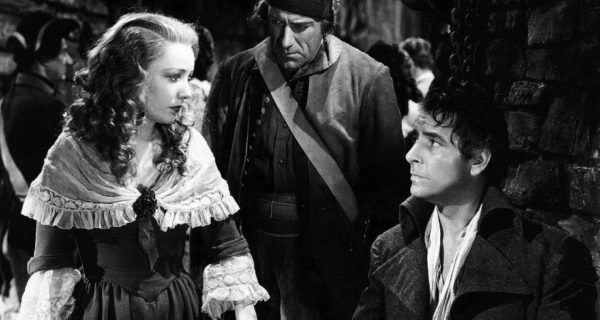One couldn’t think of two books more dissimilar than a work of French Gothic fiction such as Charles Dickins’s A Tale of Two Cities and Agatha Christie’s psychological, semi-autobiographical love story that ends badly, Unfinished Portrait. But these two novels are alike in the fact that their plots are driven by men whose characters are essential to the culmination of the story. For A Tale of Two Cities, it is Sydney Carton. For Unfinished Portrait, it is Dermot. Similar in many ways, yet fundamentally different, Sydney ends up being the hero of his piece, while Dermot is the villain.
Most people are familiar with A Tale of Two Cities. Unfinished Portrait is less well-known. The latter chronicles the life of an English girl named Celia who enjoys an idyllic childhood and happy early married years before she is nearly driven to suicide when her seemingly perfect husband loses interest in her and demands a divorce.
The parallels between the books’ male protagonists are quite striking. Sydney is an orphan. Dermot was raised by aunts in the hills of Ireland, indicating that his parents also died. Both men live in England. They are both tall, handsome, and have considerable intelligence. They even love a similar type of girl: blonde-haired, blue-eyed, slender, though the manner in which they treat her is the point of the stories.
What is different about these two men is the matter of their character. Referred to as “Charles Darnay’s alter ego,” Sydney is the psychological and moral opposite of Dermot. Dermot possesses enormous ambition and drive. Initially a poor subaltern in the British Army, he resigns from the army after World War I, enters the business field, and starts doing what he has been determined to do all along: make money. He is soon described as a successful businessman, who can afford a sports car, a nice house, and a Sealyham terrier.
In contrast to Dermot, who knows what he wants and always seems to get it, Sydney is literature’s definition of a failure. Although he has the brains and talent to be a successful lawyer, Sydney is characterised by his lack of success. He lacks the willpower to change his situation; indeed, he doesn’t seem to know even how to begin. He has no goal for his life and considers it a waste. Because of this, he is terribly unhappy. (Dermot, on the other hand, goes beyond being typically happy and laughing, to being unable to stand it when other people are unhappy.)
But the chief and most striking difference between the two men is what, plainly speaking, makes one a criminal and the other a saint. Although apparently kind for the first eleven years of his and his wife’s relationship, Dermot is fundamentally selfish. He wants his blonde-haired, blue-eyed girl and marries her, even though she is engaged to someone else. He isn’t happy when he finds out that she is going to have a baby, because he fears the baby will take his wife’s attention away from himself. When she asks to have an outing with him on a Saturday when he would rather play golf, he doesn’t offer up his game for her. When she begs him to come back while he is on a business trip because she isn’t feeling well, he refuses due to the fact that it would be inconvenient for him. In the end, when he takes a fancy to another girl, Dermot demands that his wife divorce him so that he can marry her. And when she won’t, he begins to treat her cruelly and almost causes her death.
Compare this attitude, completely lacking in devotion and concern, with the devoted, selfless, sacrificial nature of Sydney, who does not even think himself worthy to marry his love. After he has spoken of it once to her, he is silent on the subject, allowing her to marry another man, and far from running away with another woman, sacrifices himself to save the life of her husband. Dermot doesn’t understand why his wife has such a warm affection for her family. He himself won’t visit the aunts who raised him and believes that people “grow out of” family. But Sydney cares a great deal for his love’s family and becomes like an uncle to her children. While Dermot’s selfishness indicates that he has a very high opinion of himself—only what he wants, and nothing else matters—Sydney has a very low opinion of himself, and others are all that matter. In this way, he rises above himself to immortality while Dermot sinks to the lowest level.
The tales of Sydney and Dermot illustrate the reality that it is the selflessness of a character that counts. Dermot was successful; in common parlance, he “had it all”. He was happy and obviously got a lot of fun out of life. He seemed someone to be envied. But in the end, through his selfishness and exclusive attention to his own wants, he caused unhappiness for himself and others and ended up losing his daughter, never mind his wife. Sydney was viewed as the classic failure. He was unhappy, unfulfilled, pitiable, and yet through his selflessness he made his life worthwhile, earned the lasting love and respect of those whose esteem he valued most, gained a namesake, and climbed to the highest pedestal God Himself can create: that of “one who lays down his life for his friends.” In this way, the useless lawyer from 18th-century England and the successful businessman from 20th-century England meet and divide.

